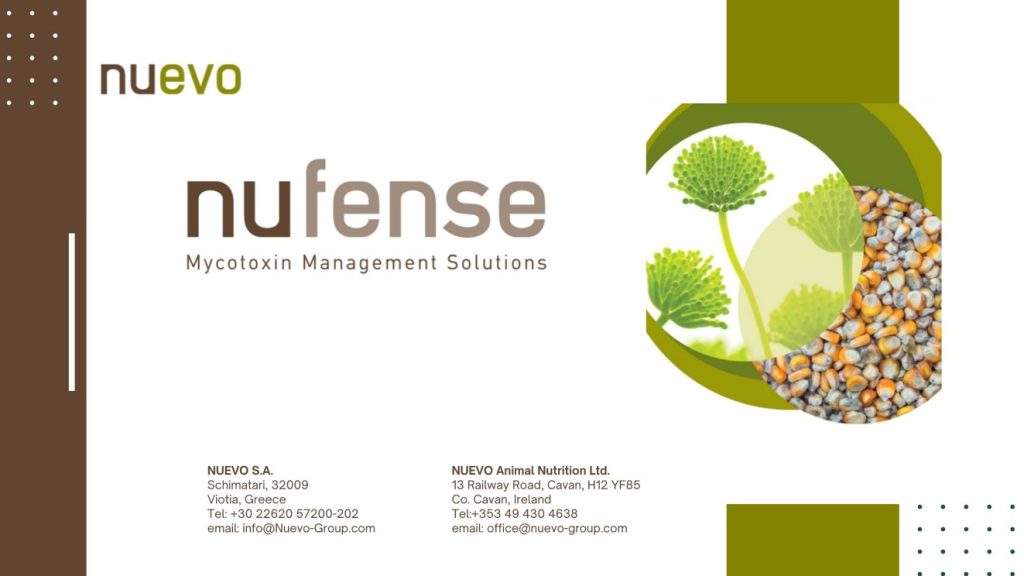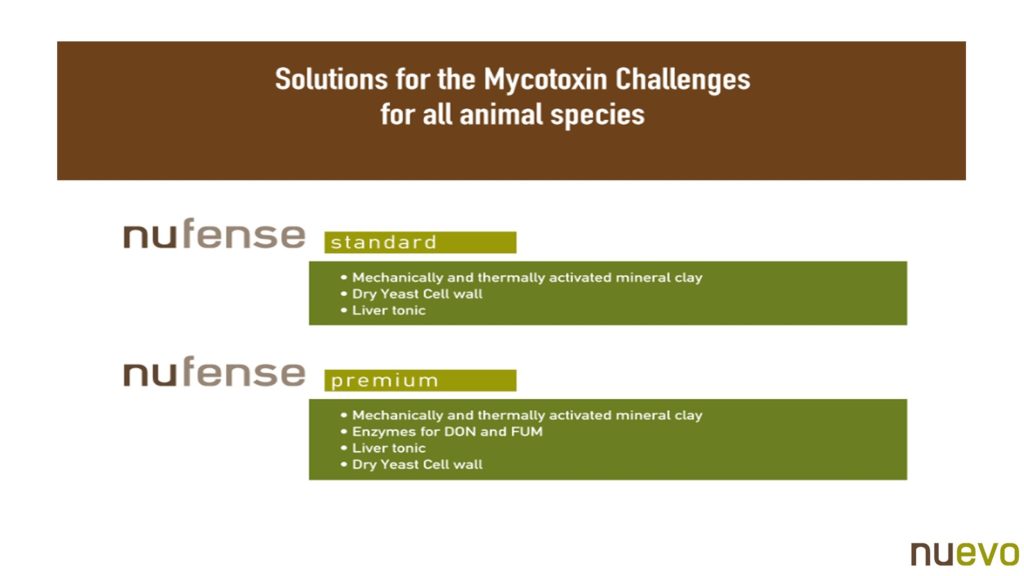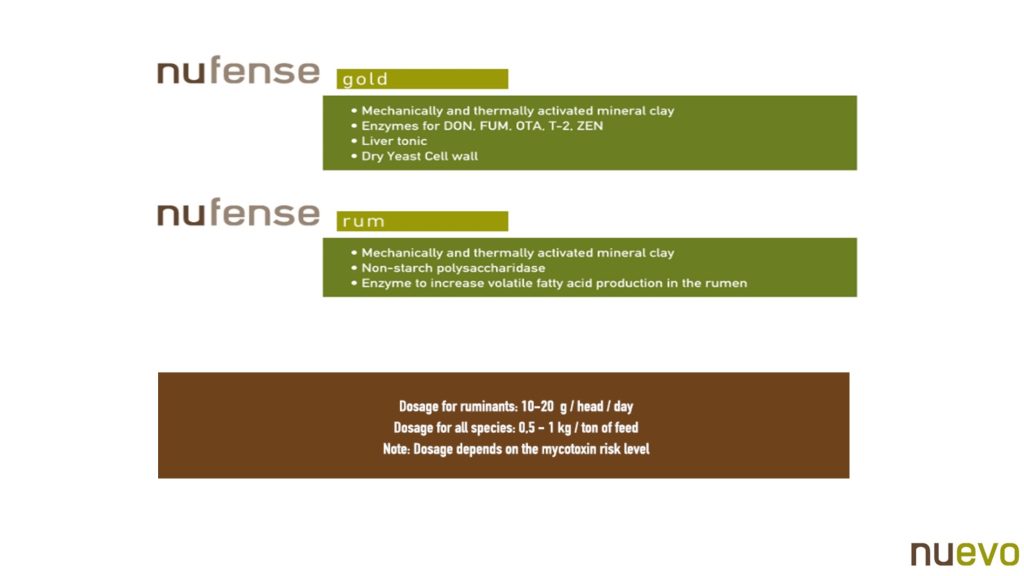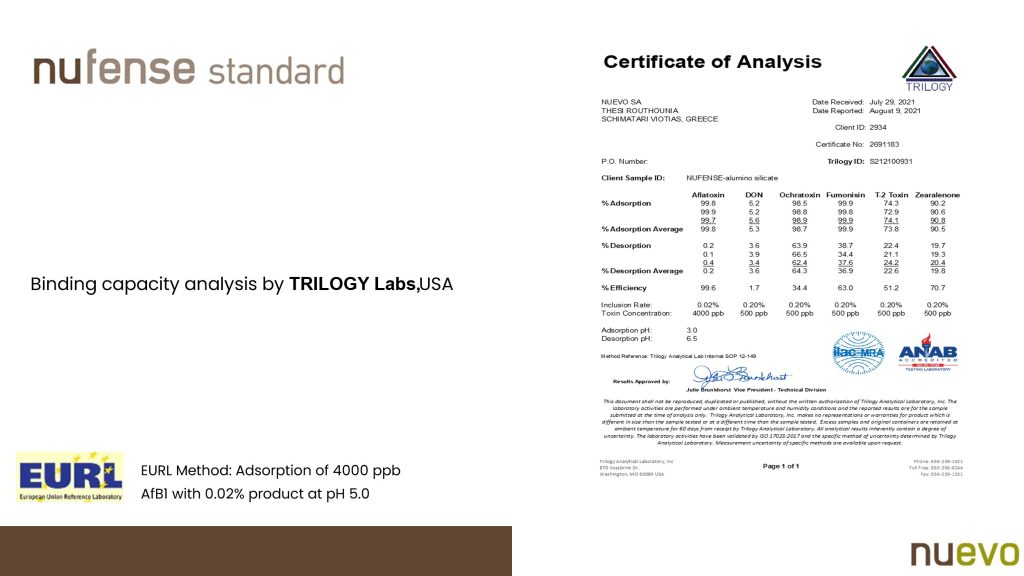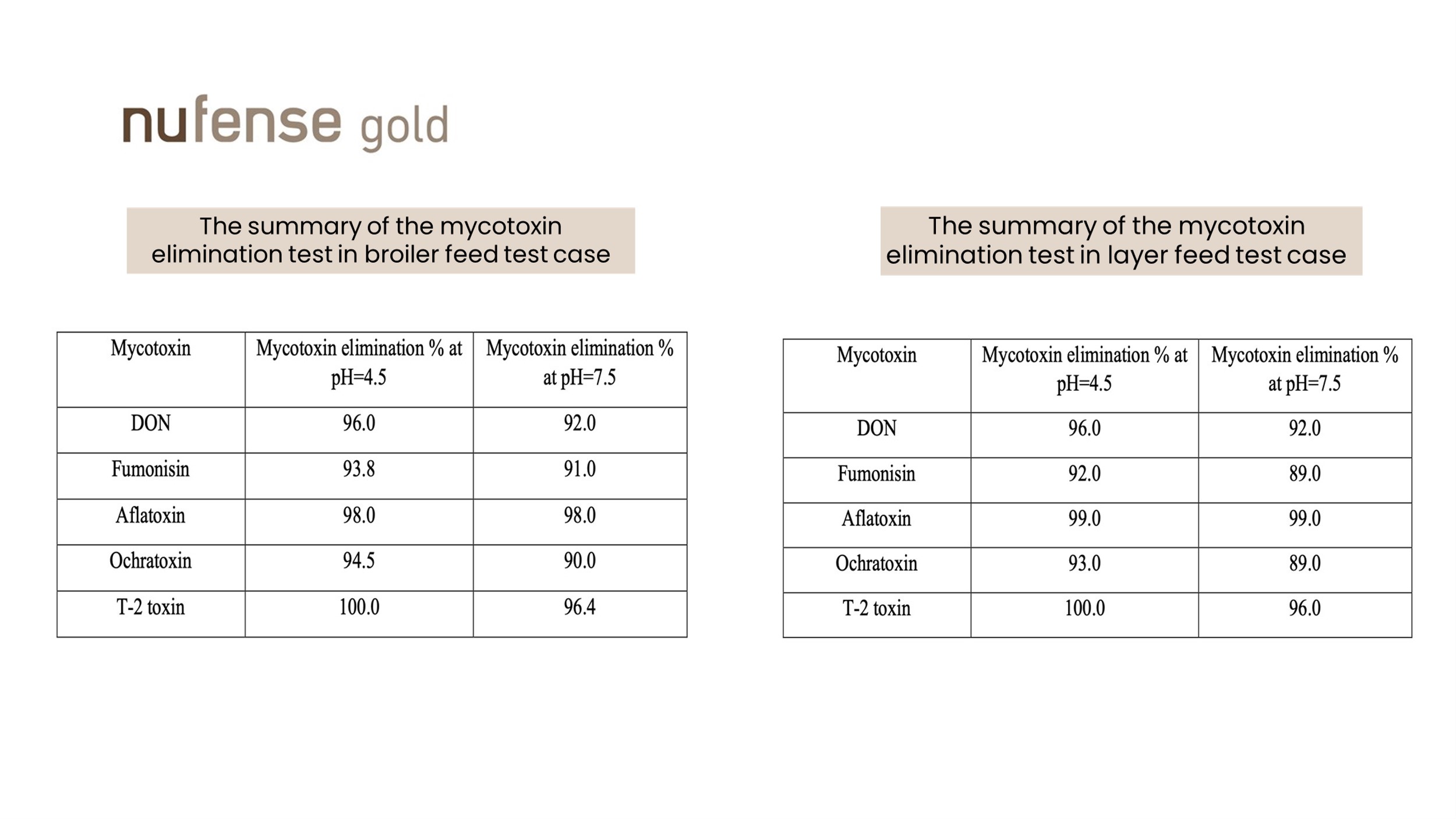Grounds of creation
The creation of our Mycotoxin Management Solutions stems from a vital need to protect animal health and enhance productivity. Mycotoxins are harmful substances produced by fungi commonly found in animal feed. Mycotoxin-producing fungi can be divided into two classes: field and storage fungi. Field fungi, such as Fusarium species, produce mycotoxins during their growth in the field. Storage fungi, such as Aspergillus and Penicillium species, produce mycotoxins after crop harvest.
The major harmful mycotoxins commonly found in feed are: Aflatoxins, Deoxynivalenol, Ochratoxin, Zearalenone, Fumonisins, T-2 and HT-2. These toxins can seriously affect animal health, leading to poor growth, weakened immunity, and many other symptoms, which in turn reduce productivity and increase production cost. Up until now, over 400 mycotoxins with toxic potential have already been described, highlighting the extensive challenge that mycotoxin contamination poses to animal health and productivity.
Mycotoxins’ presence has been associated with negative effects on immune competences and gut integrity.
The concentration, chemical composition and synergistic effects of various mycotoxins contribute to the adverse symptoms in growing animals and reproductive animals, which are exposed fpr longer periods.
At moderate to more elevated levels, Aflatoxin B1, Ochratoxin, Fumonisins and Trichothecenes such as DON, and T2, have been shown to impair gut health and cellular membrane integrity, reduce nutrient absorption, increase oxidative stress and to inhibit the synthesis of protein molecules such as immunoglobulins.




